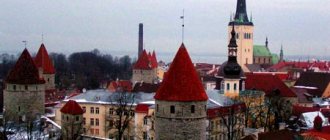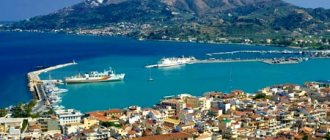Advantages of emigrating to Ireland
The main advantages of emigrating to an island state include:
- Tolerance of the local population. The Irish are open and friendly. Residents of the republic are loyal to visitors.
- Mild climate. Living on the island is suitable for citizens of almost all regions of the Russian Federation.
- Use of English. The majority of residents of the state speak this language.
- Presence of a Russian-speaking community. A Russian can always turn to his compatriots for help.
- Economic stability. A foreigner has the right to count on employment in his specialty. The country is recommended for business immigration.
- Low crime rate. Ireland is considered one of the safest EU countries to live in.
Standard of living in Ireland
Ireland has been part of the European Union since 1973, and in past years was considered one of the significant economies of England. Previously, the territory of the Irish island belonged entirely to the United Kingdom of Great Britain, but on December 6, 1922, most of the island became independent. Northern Ireland remained under the leadership of Elizabeth II. Today, the Western European state is visited by many Russian tourists, especially the capital Dublin, the historical county of Cork, the Aran Islands, and the Ring of Kerry walking route.
Russian travel agencies present the Irish island as an emerald area with over 50 shades of green. And indeed it is! Moderately warm winters, lack of snowfall, and constant light rains maintain an amazing green landscape all year round. In addition, frequent south-west winds from the Atlantic Ocean blow through the entire area, bringing a fresh breeze. Thanks to this natural combination and the absence of heavy industry, the Irish island is considered one of the cleanest in the world.
The economy in Ireland went through a major upheaval between 2008 and 2010 during the global crisis. During these years, life on the island became more difficult, primarily for the population. Thousands of people fell under forced layoff reforms and unemployment rose to its record high of 13.5%. Local residents began to emigrate in large numbers to the UK and the USA - today it is in America that the largest Irish diaspora lives. Loans from the EU and investments from the United States helped to get out of the financial and economic crisis. Due to such circumstances, Great Britain, with which the main trade turnover took place, faded into the background.
The Americans helped in difficult times and thereby strengthened trade relations; today the main share of exports in the amount of 25% goes to the USA, and only 9% to the UK. The latest export figures amount to $160 billion, imports $85 billion, thereby confirming the positive balance of foreign trade. GDP in 2021 was $386 billion, GDP per capita $78,785 per year. Today Ireland is a developed country with a stable economy, but at the same time with progress. The standard of living of the population remains high in 2021, unemployment has been reduced to 4.8%, the average Irishman receives a net salary of €2,564 per month.
Disadvantages of moving to the country
Moving to Ireland for permanent residence also has its disadvantages:
- Unusual laws. Living in the republic requires knowledge of local legal intricacies. For example, to connect to the Internet, you need to enter into a contract with a provider. You can only use the TV after purchasing a special license.
- High cost of living. Essential goods can be purchased cheaper in Ireland than in other EU countries. However, housing rent, utilities and transport costs will be expensive.
- Overcast weather. Immigrants from the southern regions find it difficult to get used to frequent rain and winds.
- Poorly developed public transport network. Residents of remote settlements are forced to travel in their cars.
How to pack a suitcase
When you move to another country with knowledge of the language, this move, in principle, becomes no more difficult than moving to the opposite end of Moscow. I found out which buses run and how they go, which stores to go shopping, where the nearest cinema is - and you’re done.
I moved around Moscow only four times: the experience is small, but sufficient. For my first move to Moscow, I only needed a couple of bags from Auchan and a taxi. So I can’t say that “packing life into a suitcase” was a problem for me. I just put winter clothes, sportswear and a camp hairdryer in it.
Popular professions and salaries
Representatives of the following professions can find work in their specialty in 2021:
- economists;
- programmers;
- doctors of narrow specialization (dentist, radiologist);
- surveyors;
- architects.
Work experience is desirable. The applicant must speak English at a level not lower than B2. Regardless of qualifications, starting employees receive no more than 15-20 thousand euros per year.
Service sector workers earn from 17 to 25 thousand euros.
The highest salaries are:
- engineers;
- programmers;
- builders;
- lawyers;
- doctors and paramedical personnel.
The annual income of these specialists is from 30 to 50 thousand euros. In Ireland you can find a job without qualifications (loader, cleaner, nanny) with a salary of no more than 15-17 thousand euros per year.
Cost of living in Ireland
The cost of living in Ireland is higher than in other European countries.
Dublin is considered the most expensive city. Prices for goods and services (in rubles)
| Product or service | Ireland | Other EU countries (average) |
| Rent a one-room apartment in the city center | 97.3 thousand/month | 43.8 thousand/month |
| Public utilities | from 11.5 thousand/month | from 8.7 thousand/month |
| One way bus ticket | 209,8 | 109,7 |
| Gym membership | 3.4 thousand | 2.6 thousand |
| Cinema ticket | 838,6 | 591 |
| Lunch at the restaurant | 1.2 thousand | 678 |
| Visit to a private kindergarten (per month) | 75.3 thousand | 36.8 thousand |
| A pair of leather shoes (for an adult) | 7.1 thousand | 6 thousand |
| A bottle of wine | 838,6 | 647,7 |
| A pack of cigarettes | 921,9 | 412 |
| Chicken breasts (1 kg) | 649,6 | 487,7 |
| Oranges (1 kg) | 173,2 | 167,7 |
| Potatoes (1 kg) | 114,1 | 107,6 |
| Milk (1 l) | 107,4 | 74,3 |
Where is it easier to live?
Let's compare the main indicators of living standards in Ireland and Russia. As a basis, we will take the main components of the food basket, housing rent, the cost of utilities in general, clothing, salaries and pensions. For comparison, let's take prices in American dollars.
Table: comparison of Ireland and Russia by price level
| A country | Chicken (kg) | Bread (loaf) | Milk (liter) | Cheese (kg) | Apples (kg) | Potato (kg) | Beer/wine | Housing Outskirts/center | Utilities | Salary | Pension |
| Russia | 5.50 | 0,7 | 1 and higher | 8 and higher | 1.50 | 0,9 | 1.30/8.60 | From 750/1000 | 150 | 730-740 | 118 |
| Ireland | From 10 | 0,9 | 0,9 | 22 and higher | 2,6 | 1,8 | 2.2/7,8 | From 614/893 | From 80 to 200 | 3000 | 1500 |
It turns out that bread, milk, beer and wine are not much higher in Ireland than in Russia. Meat, fruits and vegetables are already much more expensive. Prices for rental housing and utilities are approximately the same, and in the Irish countryside on average they are even lower than in Russia. But the average salary and pension in Ireland are immeasurably higher than the same figure in the Russian Federation.
Conditions for obtaining a residence permit
To obtain a residence permit in the Republic of Ireland, you must prepare a package of documents including:
- a valid visa;
- questionnaire;
- 2 photos (3.5x4.5 cm);
- certificate of absence of dangerous and contagious diseases (AIDS, tuberculosis);
- a document indicating the purpose of the visit (for example, an invitation from a university);
- passports (foreign and civil);
- certificate of no criminal record;
- a document confirming English language proficiency;
- income certificate.
Review of the application may take up to several months.
Methods for obtaining a residence permit in the Republic of Ireland
You can enter the republic with a category D visa. Within 3 months, you must apply for a residence permit at the migration service at your place of residence.
Starting a business
The authorized capital of the new company must be at least 300 thousand euros. The foreigner must prove that the money was earned legally.
It is recommended to buy a ready-made business to avoid bureaucratic difficulties when registering a company.
The first residence permit for an entrepreneur is issued for 3 years. The validity period is then renewed every 2 years.
Conclusion of an employment contract
You can find work in Ireland through specialized websites and recruitment agencies. A foreigner receives an invitation from a future employer.
Then you need to sign an employment contract giving the right to obtain a work residence permit. Immigrant family members can also move to Ireland. However, in this case, the foreigner is required to obtain the written consent of the employer.
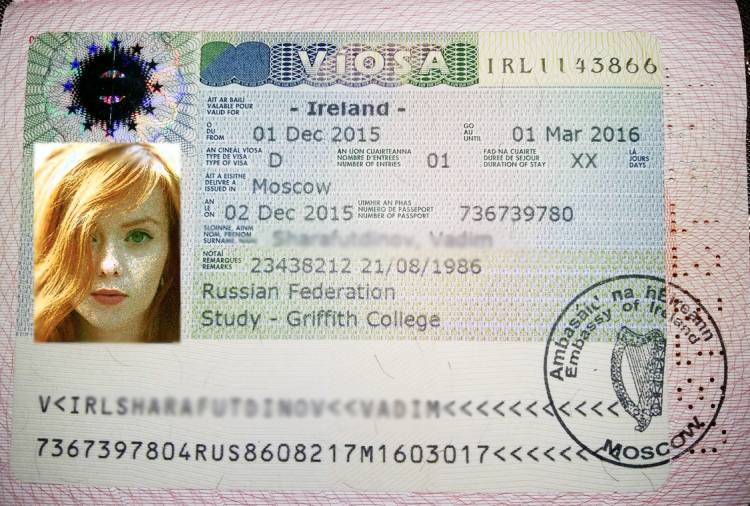
Work visa category D.
Family reunification
The program can be used by persons who have close relatives living in the republic:
- parents;
- children;
- spouses.
To immigrate to Ireland, a foreigner must apply for a national visa. Only minor applicants have the right to move in with their parents.
Studying at a university
You can obtain a residence permit after paying the tuition fee. If the student is expelled from the university, the document is canceled. The student's relatives do not receive a residence permit.
They enter the country only with a category C visa. After graduating from university, a graduate can extend his stay in Ireland for another 1 year to look for work in his specialty.
Blue Card
The republic is part of the EU. A Blue Card is valid on its territory.
The following may apply for the document:
- persons with scientific achievements;
- experts in a particular field;
- specialists holding a high position with an income of 30 thousand euros per year.
The Blue Card holder receives a residence permit under a simplified procedure for 2 years.
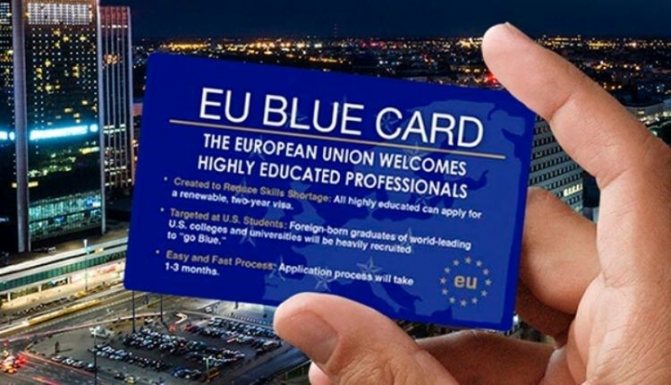
Blue Card for specialists.
Refugee programs
A person who comes from a zone of natural disasters or armed conflict can apply for status. A foreigner who has been persecuted in his home country for religious, political or other reasons has the right to seek help.
You must report your intention to obtain status at the border control. Within 5 days, the applicant must contact the Commissariat for Acceptance of Refugee Applications.
The immigrant will be invited to an interview, at which time he must present evidence of the harassment (newspaper article, video, photo, etc.). If a potential refugee can convince a Commissariat employee of the need to obtain status, he and his family will be issued resettlement certificates.
It can take up to several months for an immigrant's application to be processed. If the result is positive, the foreigner and his relatives receive state protection, social housing and benefits. If the applicant is refused, he must leave Ireland.
Birth of a child
A child is granted citizenship if the mother immigrated 10 months or more before the child's birth and intends to reside legally in Ireland. Parents apply for a residence permit in a simplified manner.
Real estate ownership
Owning real estate does not give you the right to obtain a residence permit. However, owning a house or apartment allows you to obtain a long-term visa, allowing you to live in Ireland for 180 days a year. Real estate is prohibited from being sold for 5 years after purchase.
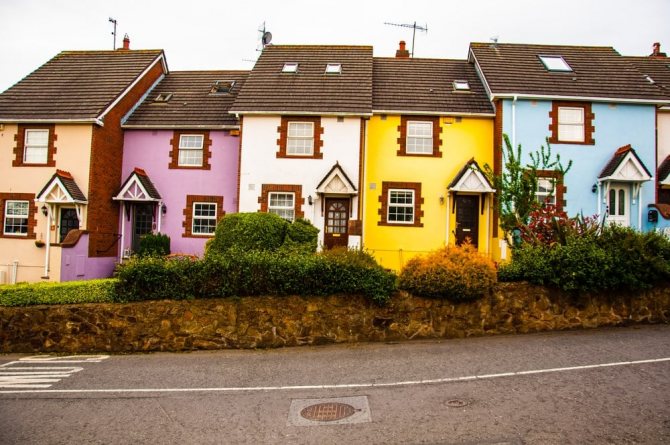
Purchasing real estate allows you to obtain a long-term visa.
Important social and cultural activities
Representatives of charitable, cultural and scientific organizations, as well as international volunteer movements can obtain a residence permit in Ireland.
The applicant must present an invitation. A residence permit is issued for the required period. In most cases, a foreigner spends on the territory of the state from 1-2 weeks to several months.
How to obtain a residence permit?
Since 2005, all issues of registration of foreigners, obtaining a residence permit/permanent residence permit, and granting citizenship have been dealt with by the departments of The Irish Naturalization and Immigration Service (INIS) - the Immigration and Naturalization Service in Ireland (SINI).
Foreigners who arrived in Ireland on a long-term visa are required to register with the SINI and obtain a residence permit within the first 3 months. Without a residence permit certificate, you cannot study, work, open a business, or participate in scientific, cultural or religious activities.
A residence permit, depending on the status of the immigrant, is issued for a period of 2 to 5 years. If a foreigner is law-abiding and provides himself and his family with a regular income, then the extension of a residence permit will be a formal procedure. Lawbreakers and low-income people who are paid benefits may have problems renewing their residence permit. SINI staff will carefully study the case before deciding whether the immigrant can stay in Ireland or whether the residence permit with an offer to leave the country should be revoked.
Advantages of an Irish residence permit
A residence permit provides social guarantees and state protection. Ireland is not one of the rich countries in Europe, but it can be classified as a quiet haven, away from global turmoil. The population of Ireland leads a calm, measured life in a society of average income and prosperity. The country has a low crime rate and well-functioning public services. As for the climate, it is considered quite comfortable. Ireland does without cold winters and hot summers.
Video: Ireland - in search of a better life
Is it possible to obtain Irish citizenship?
Persons who have permanently resided in the republic for a specified period can apply for a new status. For example, spouses of Irish citizens apply 3 years after marriage.
If there is no right to a simplified status, a person must live in the country on the basis of a residence permit for at least 4 years. Then permanent residence is issued for 4 years.
Citizenship will be denied to persons:
- those who do not speak English;
- having a criminal record for serious and especially serious crimes;
- who are military personnel or employees of intelligence services of other states;
- suffering from diseases dangerous to others.
The package of documents includes:
- passports (foreign and civil);
- birth certificate;
- letters of recommendation (for example, from an employer);
- certificates of no criminal record;
- documents confirming housing ownership or a lease agreement;
- Residence permit or permanent residence permit;
- certificate of income for the last 3 months;
- 2 photos (3.5x4.5 cm);
- detailed autobiography;
- certificate of passing a medical examination.
Some documents (birth certificate) must be translated into English and notarized. The application must be submitted to the Ministry of Foreign Affairs. The applicant has the right to retain previous citizenship.
Who are they waiting for here?
Given the relative “closedness” of the island, today there are more than five hundred thousand of the four and a half million Irish people with foreign roots. The state is interested in attracting high-profile personnel, for whom there are always places on the labor market; for this reason, immigration to Ireland is mainly labor-oriented. Upon entering the state, based on an invitation from the employer, they are automatically granted permission to obtain a residence permit. If a person has had his own business or official employment in the state for five years, he will be able to write an application for permanent residence and simultaneously apply for citizenship.
It is granted after three years of regular residence; the last year must be in the state without interruption. Provided that a woman gives birth to a child 10 months after crossing the Irish borders, he is automatically issued Irish citizenship.
Who's going to Ireland?
The number of immigrants from other countries has increased several times over the past decade.
The total number of nationalities living in Ireland varies around two hundred. Many of them are British, Poles and Latvians. The British have the largest diaspora - almost three percent of the total population. Migrants from the United States of America, Canada, Australia, New Zealand and Western Europe have the easiest time integrating into society. Things are more complicated with immigrants from Eastern Europe, Asia and the Slavs; integration is very weak among migrants from Latin America, the Middle East, India and Africa. Sixteen percent of foreign nationals who live in Ireland are not familiar with English at all or have great difficulty communicating in it.
Behind the scenes of Irish society
Ireland is a country with an average European standard of living. Most welfare indicators here are much higher than in Europe. Ireland has more comfortable living conditions and a higher quality environment. The population is healthier and obviously feel happier compared to most people from Western Europe.
Profits and salaries are lower in level than in other states of this subject. The family's net income per capita after taxes is twenty-four thousand dollars. And it is lower than the average for European territory.
Employment indicators are also low - sixty percent of the working population receive wages.
But in the state, seventy-five percent of people have completed secondary education, and life expectancy is eighty-one years.
Basically, the population of Ireland are completely satisfied with their lives. Today the state has the best economic growth rate of all the countries of the European Union.
There is no rush, no fuss, a person does not accumulate stress - work in a minimal amount, in the evening they visit pubs and restaurants. There they make appointments with friends and neighbors and talk about current topics.
Reviews from emigrants from Russia
Elena, 20 years old, Dublin: “I moved to Ireland after entering university. The standard of living here is not as high as in other European countries, but the country does not disappoint. After completing my studies I will have 12 months to find a job. I’ll try to find a job and stay.”
Andrew, 38, Cork: “I am the owner of a tourism business. I provide services mainly to travelers from Russia, Ukraine and other former Soviet republics. I don't plan to stay in Ireland forever. The island is more suitable for introverts who prefer a slower paced life.”
Julia, 35 years old, Swords: “Ireland has always been the country of my dreams. For several years I was looking for a way to obtain a residence permit in this state. She decided to marry a local and began to visit Ireland frequently. After 1.5-2 years we managed to achieve the goal. However, I quickly realized that this gray and boring island was not for me, a cheerful and cheerful person. My husband is good, but I want to return to Russia.”
Nikolai, 46 years old, Dublin: “I thought for a long time about how I left for Ireland. A former classmate helped me emigrate. He has his own business in this country. I've been living in the Dublin area for 7 years. I still can’t get used to the local climate and prices. The salary is high, but you still have to save.”
The delights of expat life in Ireland: part one
I came here by accident, my mother sent me a link to the site “Don’t Sit”. I also decided to talk about how I was thrown around the world.
To begin with, I had to indicate the location of England, since there was no Ireland. But I live in the Irish city of Cork. So, I bring to your attention my emigration story.
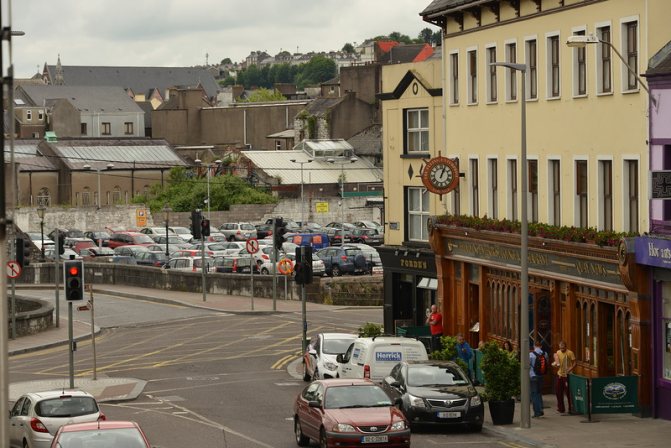
Irish city of York. Photo by vaglad2002 (https://fotki.yandex.ru/users/vaglad2002/)
The move was not difficult; I moved after my ex-husband, with whom we had a child together. I can’t say that before the move I was happy with him, but I wanted to give our dying union a chance.
The packing began: boxes, dishes - I wanted to take everything with me. Everything is mine and everything is a pity. Sending by mail cost a pretty penny. Therefore, immediate advice - do not acquire wealth if you are thinking about moving, or just give it away, sell it and fly light, do not attach your soul to things. Okay, I'm going a little off topic.
In general, by the way, I was in Turkey at the time of moving to Ireland. My husband found a job in Ireland and it began. From this moment, I warn you right away, my tearful story begins, which taught me all the delights of life as an emigrant in Ireland and that you cannot be dependent...
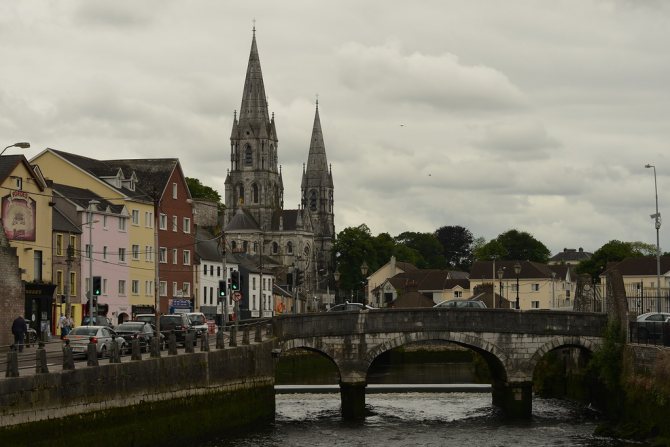
Photo by vaglad2002 (https://fotki.yandex.ru/users/vaglad2002/)
The plane landed at Dublin airport. Flying with a one-year-old is difficult. I couldn’t wait to get the stroller, finally get out of the airport and plop down to sleep. I go to the control, put both passports and wait... Then I realize that I don’t understand anything, or rather, everything that this woman in uniform tells me is abra-kadabra for me... My translation education does not help me here... Is this an accent or an Irish one?? ? Now, almost 2 years later, I understand that it was English, and a good half of the country speaks as if someone were holding their cheeks, but you can get used to it.
I showed her my passport and marriage certificate and told her that my husband was waiting. She gives me a stamp and says in a language that I can more or less understand that I have a month to register and receive permission to stay in the country. Yes, from July 15 I had a month to register.
I go out into the waiting room, look, but there is no one... My stroller hasn’t arrived, my son is tired, I’m alone in an unfamiliar country. Almost crying, I try to collect my thoughts and think about how to get through to my husband. After 10 minutes he appears and says, I’ve been here a long time, I just went to buy something. He was with a friend who was going to take us home, so I didn’t argue with him, I’m not an idiot and the airport is small, he was simply late.
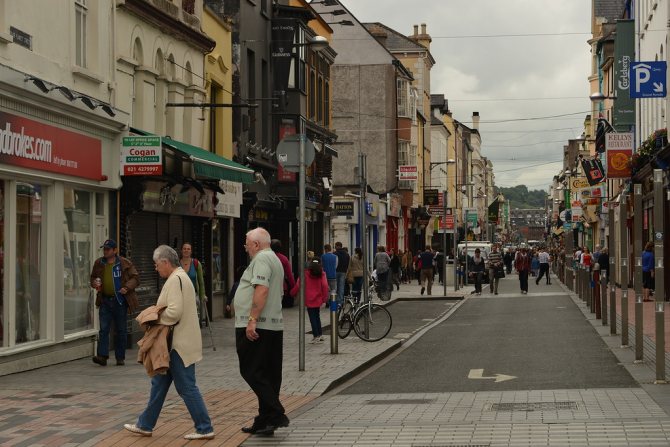
One of the city streets. Photo by vaglad2002 (https://fotki.yandex.ru/users/vaglad2002/)
We arrived at the house. I look - big, not bad. We go in, and there are some people there. Then he gets up and opens the room with the key, then it dawned on me, we live in a small room! I’m upset - I don’t have the strength, I need to change clothes and go to bed. The son, also tortured, fell asleep next to him.
The next day, more frustration awaited me: my husband was fired because he failed the last exam at work after the training, and only told me about it then.
It was a blow below the belt for me because my visa was dependent on his work. Considering that he doesn't work, I would be denied a visa. My son at that time did not have Russian citizenship, I was afraid that he might not be given a visa because of my status, so I had to fight to stay. In general, they began to go to the authorities.
I must say that in Ireland everything is cultured. He came up, explained, and they answered. In general, everything seems to be fine. They would only help with housing... That's what we thought. But it was not there.
A week later, a call on my husband’s phone. The owner of the house asks us all, to put it kindly, to get out of the house. It turns out that my husband didn’t bother to clarify whether his household could come to him?
I am in tears and in panic, everything is even worse, for a visa we also need an address, which we have lost. I don’t know what to do, I blame him, then I regret it, then looking into my son’s eyes I hate my husband again. He immediately writes to his sister, who lives in England and consults her on what to do. She advised him to contact a service that helps the homeless.
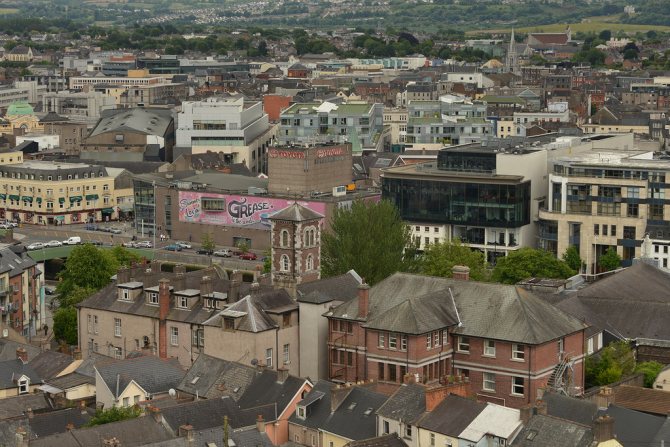
City roofs. Photo by vaglad2002 (https://fotki.yandex.ru/users/vaglad2002/)
The administrative side of Ireland is very different from the Russian one. They help everyone who proves good intentions or is Irish. By good intention we mean:
- Truly a disaster;
- Paid enough taxes (6 months minimum).
We had this and more. And also a boy in his arms. We were a little “shocked” by the conversations. They tell my husband, we’ll buy you a ticket with your family to Holland and go. He was happy, let’s go, let’s go. I immediately reminded him of the conditions of my visa. They wouldn't let me into the country.
They helped us, and as a result, we were accommodated in a hotel that cooperates with the mayor’s office. The room was okay, an ordinary hotel room. Every week they gave us money for food, 300 euros for three people. And everything seemed to work out. Except for my visa.
Things have settled down a bit. But now I’ve managed to put two and two together in my head and understand that my husband is not our support, but, on the contrary, has led us to poverty and “homelessness” (so to speak). And then, of course, our quarrels began, they always existed, but I tried and wanted to save the family. He started looking for work, we lived in a hotel room. I started to really worry about the visa.
What's good about Dublin is that it helps people who come here. I found an organization of lawyers who deal with issues of emigrants and their papers. I went there, they accepted me and told me not to worry. They added that many live illegally and have been expelled for years due to bureaucracy. But I was advised to wait until my husband finds a job. This makes it easier to submit papers and get a visa.
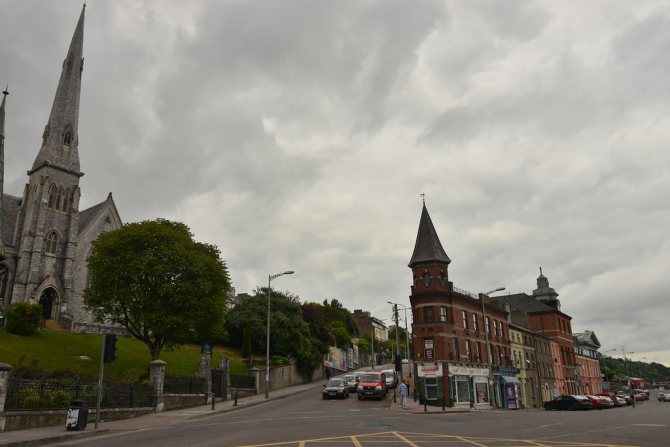
Photo by vaglad2002 (https://fotki.yandex.ru/users/vaglad2002/)
There was 1 week left until the end of the month. And then a call comes from a company located in another city; my husband was invited for an interview. The interviews went on and time passed. While we were waiting for the results, we continued to live in the hotel. The quarrels kept getting worse. The only thing that kept me in this world was my son. I’ve been illegal for almost a week now; there’s no way to submit documents. They haven't given us housing yet.
We were all waiting for it to be given. The quarrels were because work was needed, but housing was more important, and I asked him to wait. As a result, the husband chose a job and passed another interview - the third stage in a large company. They accepted him, all that remained was to find housing in Cork and move.
They helped us with a deposit, social security gave us a deposit for housing, they gave us money until our first salary, so we were able to move... It was not easy to move, I had to run back and forth for things for 3 hours on the bus with the baby, and my husband had already started going to work.
I didn't like the new apartment, but it was better than a hotel room. I sighed more calmly, but only God knew that another circle of hell was ahead.
Continued via this link...






